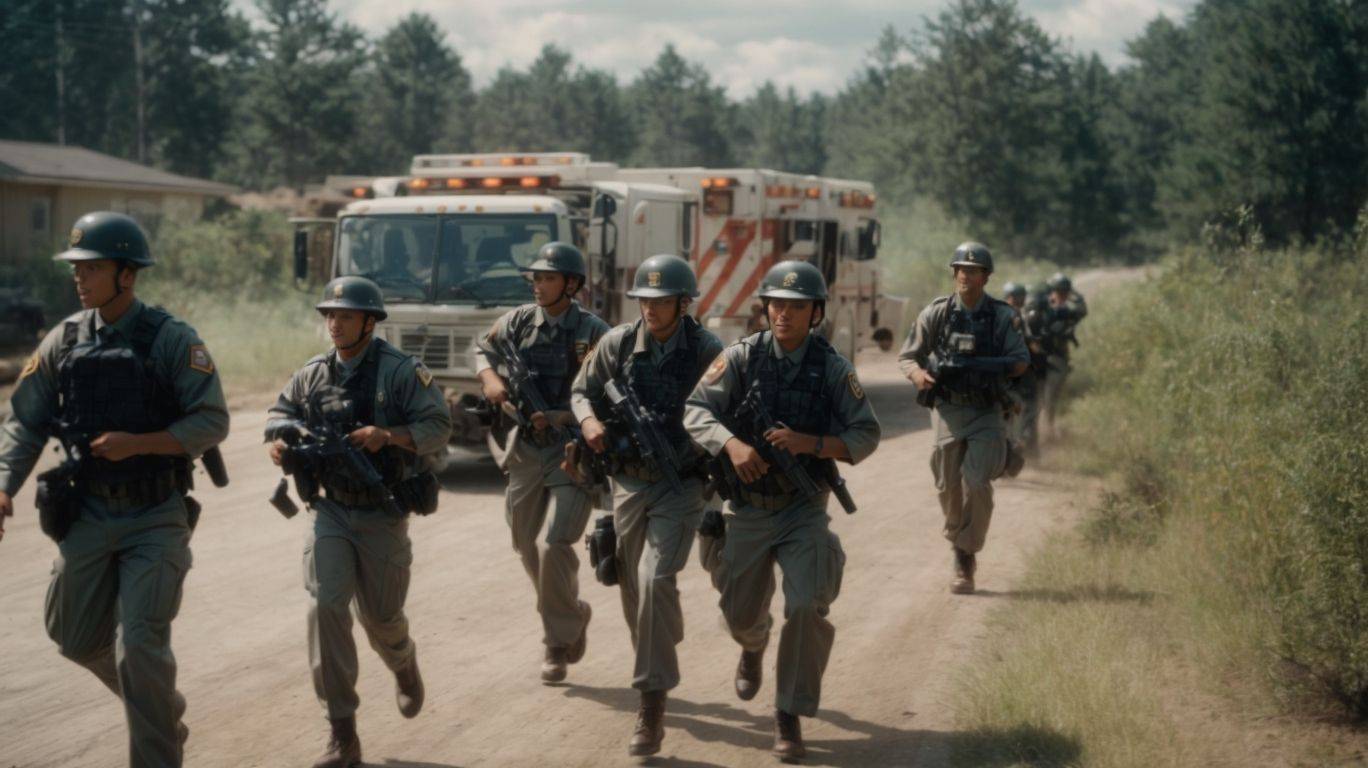Are you interested in learning more about Incident Response Teams? This article will provide you with a comprehensive understanding of the role, functions, and responsibilities of an Incident Response Team.
From examples of existing teams to the key roles within a team, we will explore the essential skills needed for team members and the benefits of joining such a team.
Stay tuned for valuable insights into setting up and equipping an effective Incident Response Team.
Key Takeaways:
Introduction to Incident Response Team
An Incident Response Team plays a vital role in addressing security incidents and maintaining cyber security within organizations.
These specialized teams are tasked with promptly identifying, containing, and eradicating cyber threats to minimize damage and mitigate risks. They are responsible for conducting post-incident analysis to enhance future incident response strategies and cybersecurity measures.
Effective communication protocols are established to coordinate efforts among team members and stakeholders, ensuring a swift and unified response to incidents. The team follows predefined incident handling procedures, which include detection, response planning, mitigation, recovery, and lessons learned to continually improve the organization’s security posture.
Understanding the Role of an Incident Response Team
Understanding the role of an Incident Response Team involves recognizing the importance of team members’ communication and collaboration in effectively responding to security incidents.
Examples of Incident Response Teams
Various organizations, ranging from small businesses to multinational corporations, have established dedicated Incident Response Teams to safeguard their security infrastructure.
These teams come in different forms, such as internal IR teams comprised of in-house experts, co-managed teams working in collaboration with third-party vendors, and outsourced teams consisting of external specialists contracted for incident resolution.
For example, a medium-sized e-commerce company may have an in-house dedicated IR team composed of network engineers, cybersecurity analysts, and forensic investigators. On the other hand, a financial institution might opt for a co-managed approach, partnering with a cybersecurity firm to enhance incident response capabilities.
Functions and Responsibilities of an Incident Response Team
The Functions and Responsibilities of an Incident Response Team encompass a wide range of roles, from IT professionals to security analysts, each contributing to the team’s overarching goal of mitigating security threats.
IT professionals play a crucial role in maintaining the organization’s systems and networks, ensuring they are secure and resilient to cyber threats. Security analysts are responsible for monitoring and analyzing security incidents, identifying potential vulnerabilities, and implementing proactive measures to safeguard data and assets. Incident handlers lead the response efforts during a security breach, coordinating actions to contain the incident, investigate its root cause, and restore normal operations.
The collaborative nature of incident response activities requires effective communication and coordination among team members, leveraging each member’s expertise to address different aspects of an incident swiftly and decisively. Documentation plays a key role in incident response, helping teams track the incident response process, analyze the effectiveness of response strategies, and comply with regulatory requirements.
Legal considerations are paramount in incident response, with teams ensuring compliance with data protection laws, reporting requirements, and preserving evidence for potential legal proceedings. By incorporating these diverse roles and responsibilities, an Incident Response Team can effectively respond to security incidents, minimize impact, and strengthen the organization’s overall cybersecurity posture.
Location and Setup of an Incident Response Team
The Location and Setup of an Incident Response Team are crucial aspects that require strong leadership, well-defined documentation processes, and access to essential security infrastructure.
Establishing a centralized command center for the Incident Response Team is fundamental to ensure swift decision-making and coordinated response efforts. This physical setup should be equipped with necessary technology and resources to analyze and mitigate security incidents effectively. Defining clear communication channels among team members, stakeholders, and external partners is imperative for timely information sharing.
Setting regular meeting schedules for the team fosters collaboration, updates on ongoing incidents, and strategy refinement. Documentation protocols play a vital role in ensuring that all actions, decisions, and outcomes are recorded accurately for post-incident analysis and continuous improvement.
Choosing the Right Members for the Team
Choosing the Right Members for an Incident Response Team involves evaluating technical skills, experience in incident management, and the ability to respond effectively to emergency situations.
Technical expertise is a vital component, encompassing a deep understanding of network security, malware analysis, intrusion detection, and system vulnerabilities. Individuals with hands-on experience in incident response bring practical knowledge that can be invaluable during high-pressure situations.
A well-rounded team should possess diverse skill sets, ranging from forensics and data analysis to communication and decision-making. Proactive thinking and the ability to anticipate threats are equally crucial traits in responding swiftly and effectively to incidents.
Members must also be willing to adhere to on-call schedules, ready to jump into action at a moment’s notice. This readiness ensures that the team can address incidents promptly and minimize potential damages. The selection process for an Incident Response Team requires a careful balance of technical proficiency, experience, and preparedness for handling critical scenarios.
Key Roles in an Incident Response Team
Key Roles in an Incident Response Team include threat hunters who proactively identify cyber threats, analysts who conduct in-depth security analysis, and command center operators who coordinate response efforts.
Threat hunters are crucial for continuously monitoring systems to detect and assess potential threats. Their proactive approach helps in identifying security weaknesses before they are exploited, enabling preemptive measures to be taken.
Analysts play a vital role in investigating and analyzing security incidents, determining the scope, impact, and root cause of breaches. They provide valuable insights that guide response strategies and strengthen defenses against future threats.
Command center operators act as the central hub, facilitating communication and collaboration among team members, ensuring a coordinated response to incidents, and implementing incident response plans effectively.
Equipping the Incident Response Team
Equipping the Incident Response Team involves providing the necessary tools, technologies, and company equipment to effectively address technical incidents and adhere to security best practices.
Forensic analysis tools play a crucial role in the incident response process, enabling professionals to collect, preserve, and analyze digital evidence. These tools, such as EnCase Forensic and FTK, help in uncovering the root cause of security breaches and identifying potential vulnerabilities.
Incident response software, like IBM Resilient and Splunk Enterprise Security, streamline communication, task assignment, and analysis during incident handling. They facilitate efficient collaboration among team members and ensure a structured approach to incident resolution.
Adhering to established security protocols, such as the NIST Cybersecurity Framework and ISO/IEC 27001 standards, is paramount for maintaining data integrity and confidentiality. Regular training sessions and mock incident drills are also essential to keep the team well-prepared for any security incident.
Selection Criteria for Team Members
The Selection Criteria for Team Members in an Incident Response Team encompass considerations such as legal representation, technical proficiency, and alignment with specific incident management roles.
Legal expertise is vital for ensuring that the team adheres to relevant laws and regulations during incident response activities, preventing any legal complications.
Technical competencies are essential to effectively respond to cyber threats, detect vulnerabilities, and mitigate risks efficiently.
Diversity in skill sets is crucial to cover a wide range of potential incidents effectively. By having team members with varied experiences and expertise, the team can approach incidents from different angles and come up with innovative solutions.
Benefits of Joining an Incident Response Team
Joining an Incident Response Team offers numerous benefits, including the opportunity to handle crises effectively, interact with executive staff, and utilize diverse communication channels for incident resolution.
Being part of such a team allows you to gain invaluable experience in navigating high-pressure situations, honing your decision-making skills, and developing a deep understanding of cybersecurity protocols.
Collaborating closely with leaders can provide insight into strategic decision-making processes, creating pathways for professional growth and advancement within the organization.
The diverse communication channels utilized in incident response not only enhance your technical abilities but also refine your interpersonal skills, enabling you to effectively liaise with different stakeholders and coordinate cohesive incident response strategies.
Essential Skills for Team Members
Possessing Essential Skills is crucial for team members in an Incident Response Team, including proficiency in meeting schedules, communication coordination, and forensic analysis.
Team members must excel in time management to ensure they can effectively meet critical schedules and response timelines during incidents. The ability to collaborate and maintain clear and concise communication coordination is paramount in ensuring a cohesive and efficient response. A deep understanding and expertise in forensic analysis techniques are essential for investigating incidents thoroughly.
Continuous skill development is vital in this dynamic field to keep pace with the ever-evolving landscape of cybersecurity threats. Team members need to stay adaptable and up-to-date with the latest tools, technologies, and trends to effectively address emerging security challenges.
Lessons Learned and Best Practices
Reflecting on Lessons Learned and Best Practices is essential for Incident Response Teams to enhance their capabilities, engage external consultants for expert insights, and collaborate with legal representatives to address security analysis effectively.
By reviewing past incidents, Incident Response Teams can identify vulnerabilities, patterns, and trends, allowing them to develop more robust response strategies. External consultants play a crucial role in providing specialized knowledge and experience, offering valuable perspectives that can enhance the team’s understanding of emerging threats. Collaborating with legal representatives ensures that response actions comply with regulations and legal requirements.
Continuous security analysis is vital for proactive threat mitigation, enabling teams to detect potential risks early and implement preventive measures promptly. By incorporating best practices into their operations, including regular training and simulation exercises, teams can maintain readiness and improve their overall operational effectiveness.
Frequently Asked Questions
What is an Incident Response Team?
An Incident Response Team is a group of trained professionals who are responsible for responding to and managing any security incidents or breaches within an organization.
What is the purpose of an Incident Response Team?
The main purpose of an Incident Response Team is to quickly and effectively respond to any security incidents or breaches in order to minimize the impact and potential damage to an organization’s systems and data.
Who makes up an Incident Response Team?
An Incident Response Team typically consists of members from various departments within an organization, such as IT, security, legal, and communications.
What are the key responsibilities of an Incident Response Team?
The main responsibilities of an Incident Response Team include identifying and containing a security incident, investigating the cause and extent of the incident, and implementing measures to prevent similar incidents in the future.
How does an Incident Response Team handle a security incident?
An Incident Response Team follows a predefined process to handle a security incident. This usually involves assessing the situation, determining the scope of the incident, and taking necessary actions to contain and mitigate the incident.
Why is it important to have an Incident Response Team?
An Incident Response Team is crucial for effective incident management. Having a dedicated team in place helps to ensure a timely and coordinated response, minimizing the impact and potential damage of a security incident on an organization.





